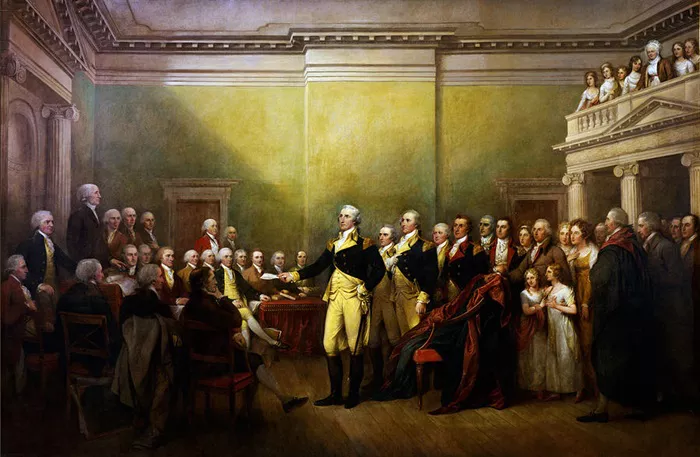What Happened on December 23 in American History?
George Washington Resigns His Commission (1783)
One of the most pivotal moments in American history occurred on December 23, 1783, when George Washington resigned his commission as commander-in-chief of the Continental Army. This act took place at the Maryland State House in Annapolis, where the Continental Congress was convened. Washington’s resignation was not just a personal decision; it symbolized the transition from military rule to civilian governance.After leading the American forces to victory against Great Britain in the Revolutionary War, Washington faced immense pressure to assume power. However, he chose to relinquish his military authority voluntarily. This decision was crucial for establishing the precedent of civilian leadership over the military, a cornerstone of American democracy. Washington’s farewell address to his officers was emotional, as he thanked them for their loyalty and service during the eight years of conflict.His journey back to Mount Vernon, where he would live as a private citizen for the first time in nearly a decade, was met with admiration and gratitude from citizens along the route. This event is often celebrated as a testament to Washington’s character and commitment to the principles of democracy and republicanism.
The Treaty of Ghent Signed (1814)
On December 23, 1814, the Treaty of Ghent was signed between the United States and Great Britain, effectively ending the War of 1812. Negotiated in Ghent, Belgium, this treaty marked a significant moment in U.S. history as it restored relations between the two nations and resolved ongoing conflicts.The War of 1812 had been fought over various issues, including trade restrictions imposed by Britain and British support for Native American attacks against American settlers. The treaty did not address many of these underlying causes but did restore pre-war boundaries and established peace between the two nations.The signing of this treaty is significant not only for its immediate impact but also for its long-term effects on U.S.-British relations. It laid the groundwork for a more peaceful coexistence and cooperation in subsequent years.
Vincent van Gogh Cuts Off His Ear (1888)
While not an American event per se, December 23, 1888, is notable for an incident involving Vincent van Gogh, a Dutch painter who famously cut off part of his ear during a mental health crisis. This event occurred while he was living in Arles, France, but it had indirect implications for American art and culture.Van Gogh’s struggles with mental illness and his passionate dedication to art have inspired countless artists across generations. His works gained significant recognition posthumously and influenced movements such as Expressionism and Abstract art. The story of his ear-cutting incident serves as a poignant reminder of the challenges faced by artists and has become emblematic of the tortured artist archetype.
The Federal Reserve Act Signed (1913)
On December 23, 1913, President Woodrow Wilson signed the Federal Reserve Act, which established the Federal Reserve System. This act created a central banking system aimed at providing stability to the financial system in America.Prior to this legislation, financial panics were common due to a lack of centralized control over monetary policy. The Federal Reserve was designed to address these issues by regulating banks and managing inflation through monetary policy tools. The creation of this institution marked a significant shift in economic governance in the United States.The Federal Reserve continues to play a crucial role in managing economic stability today. Its decisions impact interest rates, inflation, and overall economic growth, making it one of the most influential institutions in American finance.
Conclusion
December 23 holds significant historical importance in American history due to various events that have shaped both domestic policy and international relations. From George Washington’s resignation symbolizing democratic ideals to pivotal economic reforms like the establishment of the Federal Reserve System, each event contributes uniquely to America’s narrative.These moments reflect broader themes such as leadership transitions, conflict resolution, artistic struggles, and economic governance that resonate throughout American history. Understanding these events provides valuable insights into how they have influenced contemporary society and governance structures within the United States.

